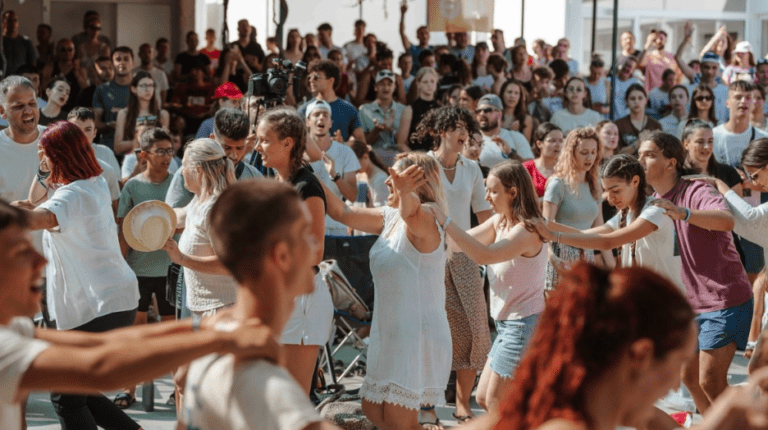Evangelicals from two generations and diverse church backgrounds look at the fruits of collaboration, says Croatian Jasmine Avdagic. The festival attracted 1,300 people from countries in the former Yugoslavia region.
Regional evangelical Christians, who suffered deep armed conflicts, centered around the dissolution of Yugoslavia, speak about new generations of collaborations they have never seen before.
1,300 church members from various backgrounds traveled to Sibenik, Croatia in June to nurture fellowships, worship God, enjoy and receive good training. They came from Serbia, Bosnia and Herzegovina, Slovenia, Montenegro, North Macedonia and Croatia itself.
It was a key moment in “Christ’s Unity,” and Jasmine Avdagic oversees the Surkokle Festival and serves as the national coordinator of Step (Croatia’s IFES Student Movement).
Not only was there a diversity in the origins of participants (the festival programme was translated into five languages), but most evangelical church denominations and organizations were represented.
“The mother and father generation served the generation of sons and daughters, worshiped together, and evangelized,” he explained to the focus of evangelicalism.
Summer gatherings at the sea also sought to influence missions, “making a bold declaration of the gospel to the cities and regions of Sibenik, including great evangelistic events, including praise and worship, sermons, testimony and one-on-one witnesses in the city’s main squares.”
“Strong breakthrough”
This kind of cooperation between Christians across borders is taking place in regions of Europe.
The Socialist Republic of Yugoslavia was dissolved in 1990 after a difficult conflict that caused at least 100,000 deaths.
“We had a breakthrough, close relationship and coworker than ever before,” says Jasmine Avdagic. “This is surprising given the regions torn apart by the war. The younger generations are especially free from the bondage of the past.”
Local churches are at the heart of this slow work, and Christian organizations use flexibility and international connections to work together to create “the culture and atmosphere of the kingdom where young leaders are emerging.”
Prayer in the emergence of a new, divisive story
But it’s not all a simple voyage. In the political and social media context where ultranationalist rhetoric recreates and reopens the wounds of war, the church plays an important role in promoting long-term peace.
“We must be calm and vigilant and watch over our nation, praying.” “The fact that there are young people who advocate for the mix of nationalism and the Christian heritage illustrate both the hunger for the true Christian values in postmodern liberal societies and the danger of manipulating that hunger into politics and conflict.”
For Jasmine Avdagic and other Christians, “Prayer and hope are for us to not return to conflict, but for us to declare peace and mutual values in the region.”
Originally published by the Evangelical Focus.
